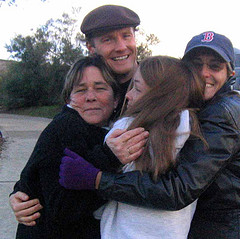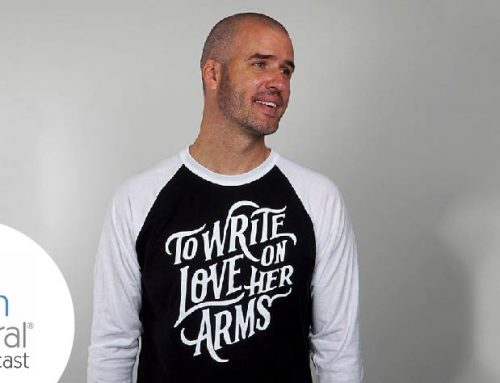 Let’s pretend for a moment that living with bipolar disorder isn’t life-sucking. Let’s pretend that having a chronic illness, going to medical appointments, and managing the day-to-day issues that bipolar disorder brings doesn’t take a daily toll. For the sake of argument, I’ll even remove fear, expenses, and emotional pain from the list of things bipolar brings into my life. Even if every last thing I just said was true, one thing that will never be true is this:
Let’s pretend for a moment that living with bipolar disorder isn’t life-sucking. Let’s pretend that having a chronic illness, going to medical appointments, and managing the day-to-day issues that bipolar disorder brings doesn’t take a daily toll. For the sake of argument, I’ll even remove fear, expenses, and emotional pain from the list of things bipolar brings into my life. Even if every last thing I just said was true, one thing that will never be true is this:
I didn’t choose to have bipolar disorder.
Bipolar Disorder Is an Illness, Not a Lifestyle Choice
Anyone with bipolar disorder knows that it is an illness. I didn’t choose this and I can’t imagine anyone would. The 15% completed suicide rate alone should be enough to convince anyone that bipolar disorder isn’t something that people would choose.
Before I was diagnosed – and, therefore, before I was treated – the symptoms of bipolar disorder ruled my life. The highs and lows of the disease were very traumatic to me, and to those around me. I’d be happy one day and depressed the next. I was angry, unfocused, and unreliable.
Severely sick people don’t accomplish much outside of being sick. The disease takes over and ruins everything. My entire life before I was diagnosed was about fighting an illness I wasn’t even aware I had.
After I was diagnosed with bipolar disorder, life certainly got better, in that at least I knew what was happening. I had help in the way of medical intervention and education. Bipolar disorder required a lot of time and energy to fight and left me drained and exhausted on a daily basis. Progress, as many of us know, is measured in baby steps.
So, you can imagine how it must feel to work so hard, feel so emotionally drained, and suffer this much and have someone walk up to you and tell you to “just cheer up.”
A Person Can’t Choose to “Get Over” Bipolar Disorder
Advice like “you are focusing on the negative” and “just calm down” or pretty much anything that starts with “you know what your problem is. . .” that doesn’t end with “. . . you have a chronic mental illness that you need to work diligently to manage on a day-to-day basis” is, at best, ignorant.
 In many ways, it is worse than that. Sure, it is easy for me to acknowledge that the person saying it just doesn’t understand and is trying to help. Often, people aren’t trying to be malicious when they say these things. But, in acknowledging that, I am also forced to acknowledge that I am misunderstood and the people saying these things are not allies. They aren’t intentionally trying to be unhelpful, but it doesn’t change the fact that they are not only unhelpful, but actively hurtful. Because now, in addition to being sick, I am also forced to educate those around me.
In many ways, it is worse than that. Sure, it is easy for me to acknowledge that the person saying it just doesn’t understand and is trying to help. Often, people aren’t trying to be malicious when they say these things. But, in acknowledging that, I am also forced to acknowledge that I am misunderstood and the people saying these things are not allies. They aren’t intentionally trying to be unhelpful, but it doesn’t change the fact that they are not only unhelpful, but actively hurtful. Because now, in addition to being sick, I am also forced to educate those around me.
And it makes me feel alone.
If you are someone living with bipolar disorder and have experienced this, please know you aren’t alone. There are lots of us and we all go through this to some extent.
If you know someone with bipolar disorder and think that there is a quick fix, please take a moment to consider educating yourself. There is a lot of excellent information online and you can ask your friend or family member how they would like to be supported.
Remember, we know you are trying to help. Wouldn’t it be great if that help was actually helpful?
This post originally appeared on PsychCentral as, “I Didn’t Choose To Have Bipolar Disorder.”







